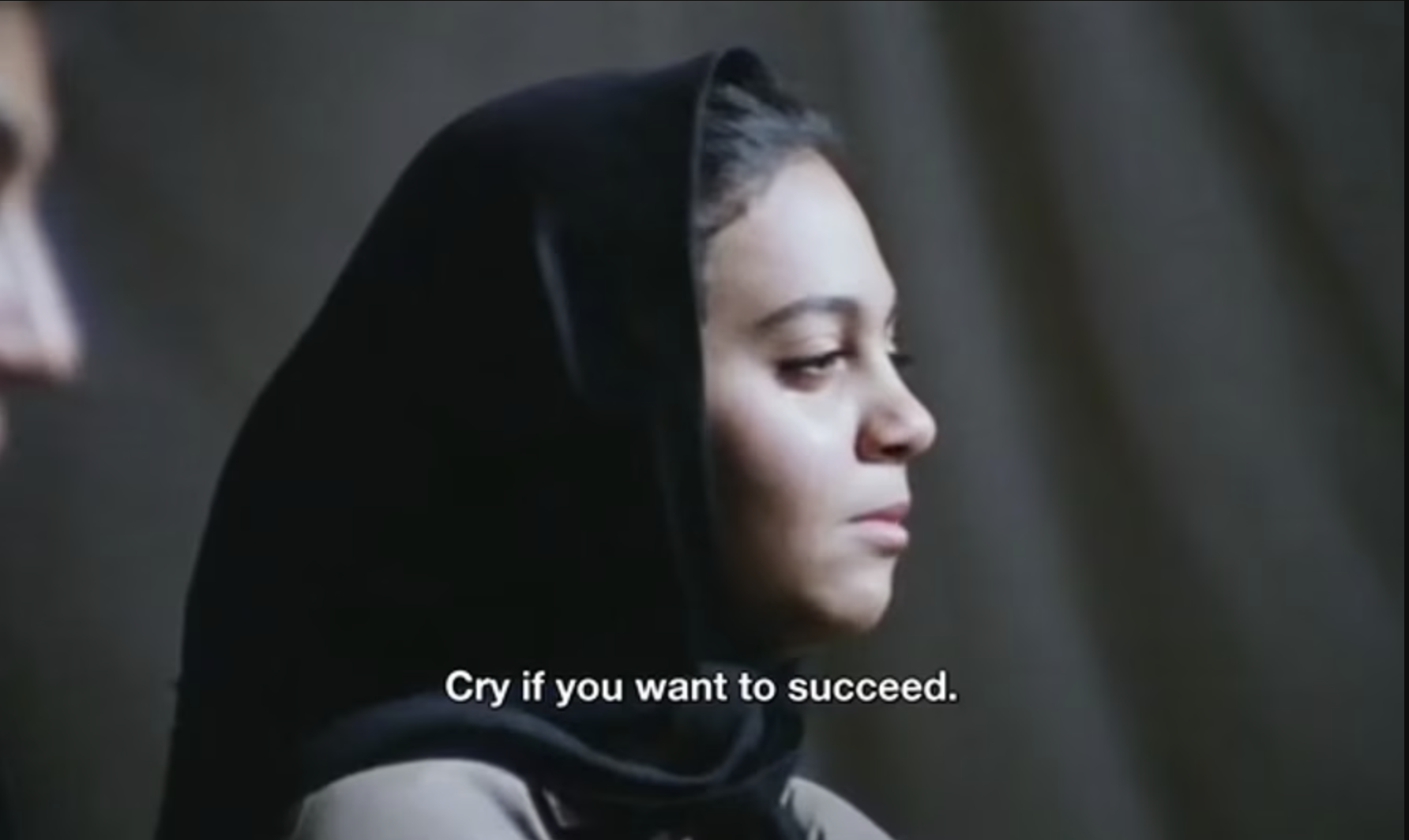Salaam Cinema,
the light at the end of the camera

"There was room for all of you. The cinema is for everyone. If the cinema reflects on life, then there's room for everyone."
There are movies that entertain, movies that enlighten, and then there are movies like "Salaam Cinema" that do something far more rare and wonderful: they make us rethink what movies can be.
Director Mohsen Makhmalbaf places an ad in the newspaper seeking actors for a film. On the day of the open casting call, an astounding 5,000 citizens of Tehran show up. What happens next becomes the film itself, a documentary about people's burning desire to be in movies, and a gentle look at human nature and our own little searches for greatness.
![]()
The camera becomes a window into dreams and desperation. As Makhmalbaf interviews the hopefuls, asking them to cry or laugh on command, we witness something both beautiful and heartbreaking. These aren't professional actors, they are ordinary people who believe that appearing in a film might somehow transform their lives. A blind boy professes his love for cinema. A beautiful woman wants the role as a way to get a visa to go to France (she reasons to the director that ‘all your films end up at cannes and my boyfriend lives in France and I want to be with him). A father who wants to leverage his friendship with Makhmalbaaf to get his kids the role. They lie, plead, and perform - sometimes movingly, sometimes awkwardly, always honestly.
What makes "Salaam Cinema" special is its compassion. Makhmalbaf could have created a cruel exposé of human vanity. Instead, he creates a mirror in which we see ourselves. Haven't we all dreamed of being noticed, of being special, of escaping our ordinary lives through some magical transformation? The movie makes us laugh, but it never laughs at its subjects.
![]()
The film operates on multiple levels. Yes, it's a documentary about a casting call. But it's also a meditation on filmmaking itself, revealing how directors manipulate emotions and performances.
There are moments of pure poetry. When one woman, after crying on command, wipes away her tears and smiles with quiet dignity, we see the resilience of the human spirit. When the blind boy reveals his true intentions, it takes our breath away.
It’s love for cinema manifest on celluloid.
![]()
"Salaam Cinema" runs a brisk 75 minutes, but it feels complete. Makhmalbaf knows that holding up a mirror to human nature doesn't require epic length. The film ends not with a solution to the dreams and desires it has unveiled, but with an acknowledgment of their power.
This is the kind of film that reminds us why we love movies: because they can capture life itself, in all its messy, hopeful, tragic beauty. It's a film about wanting to be in films, but it becomes something larger, a film about the human condition.
Recommended for anyone who has ever watched a movie and thought, "I wish that were me up there."
There are movies that entertain, movies that enlighten, and then there are movies like "Salaam Cinema" that do something far more rare and wonderful: they make us rethink what movies can be.
Director Mohsen Makhmalbaf places an ad in the newspaper seeking actors for a film. On the day of the open casting call, an astounding 5,000 citizens of Tehran show up. What happens next becomes the film itself, a documentary about people's burning desire to be in movies, and a gentle look at human nature and our own little searches for greatness.

The camera becomes a window into dreams and desperation. As Makhmalbaf interviews the hopefuls, asking them to cry or laugh on command, we witness something both beautiful and heartbreaking. These aren't professional actors, they are ordinary people who believe that appearing in a film might somehow transform their lives. A blind boy professes his love for cinema. A beautiful woman wants the role as a way to get a visa to go to France (she reasons to the director that ‘all your films end up at cannes and my boyfriend lives in France and I want to be with him). A father who wants to leverage his friendship with Makhmalbaaf to get his kids the role. They lie, plead, and perform - sometimes movingly, sometimes awkwardly, always honestly.
What makes "Salaam Cinema" special is its compassion. Makhmalbaf could have created a cruel exposé of human vanity. Instead, he creates a mirror in which we see ourselves. Haven't we all dreamed of being noticed, of being special, of escaping our ordinary lives through some magical transformation? The movie makes us laugh, but it never laughs at its subjects.

The film operates on multiple levels. Yes, it's a documentary about a casting call. But it's also a meditation on filmmaking itself, revealing how directors manipulate emotions and performances.
There are moments of pure poetry. When one woman, after crying on command, wipes away her tears and smiles with quiet dignity, we see the resilience of the human spirit. When the blind boy reveals his true intentions, it takes our breath away.
It’s love for cinema manifest on celluloid.

"Salaam Cinema" runs a brisk 75 minutes, but it feels complete. Makhmalbaf knows that holding up a mirror to human nature doesn't require epic length. The film ends not with a solution to the dreams and desires it has unveiled, but with an acknowledgment of their power.
This is the kind of film that reminds us why we love movies: because they can capture life itself, in all its messy, hopeful, tragic beauty. It's a film about wanting to be in films, but it becomes something larger, a film about the human condition.
Recommended for anyone who has ever watched a movie and thought, "I wish that were me up there."
05 May 2025